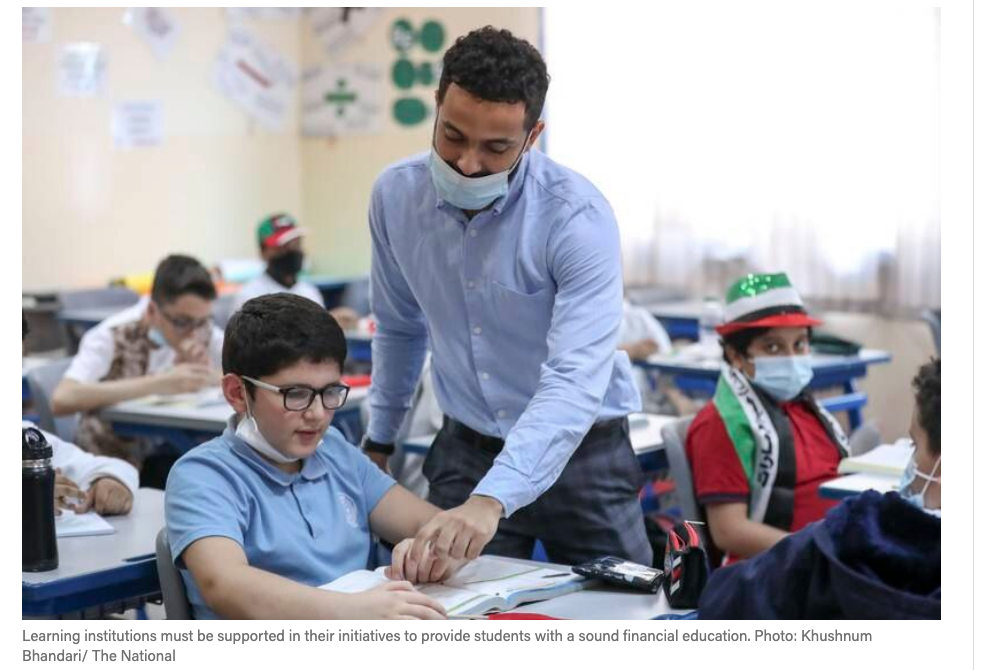Robert Kiyosaki, bestselling author of Rich Dad, Poor Dad and an educational entrepreneur, has long argued for financial literacy to be taught in schools and not only at home. Money enables prosperity and understanding its impact in society is critical.
Rich Dad, Poor Dad was published in 1997 and, while financial education in schools still has a long way to go 25 years on, there has been some progress — as well as published data that highlights the positive economic impact of a financial education.
While in the past decade emphasis on science, technology, engineering and mathematics (Stem) has increased amid global educators, they have traditionally overlooked effective financing, budgeting, saving and spending as critical subject matters.
However, there has been a shift in tides. For example, the Financial Capability Strategy for the UK outlines the social benefits of financially literate children, while countries like the UAE and Saudi Arabia consider financial education a key component towards delivering their long-term national visions.
Governments are beginning to recognise the positive impact of equipping current and future citizens with important financial literacy tools.
They are acting on research published by international organisations such as the Organisation for Economic Co-operation and Development (OECD), which said: “Supporting financial education can be viewed by the main public, private and civil stakeholders as a critical long-term investment in human capital.”
The benefits of a financially literate population are also being more widely recognised as a key driver of inclusion.
Financial literacy has even evolved into an area of academic study with frameworks such as the National Standards for Financial Literacy outlining a basic curriculum for teaching personal finance at every school level — from kindergarten through to Year 12.
One of the OECD’s key initiatives to drive financial literacy is Global Money Week (GMW), an annual global awareness campaign on the importance of ensuring that young people, from an early age, are financially aware and gradually acquiring the knowledge, skills and attitudes necessary to make sound financial decisions that set them up for financial well-being and resilience.
During this year’s edition of GMW, held from March 21 to 27, Visa conducted a series of financial literacy educational workshops in collaboration with governments and a financial institution in Cameroon and Cote d’Ivoire. In the UAE, we collaborated with Cashee, a FinTech that focuses on teenagers’ access to financial education in their learning journey.
These engagements provide partners with an opportunity to leverage networks to scale access to tools and techniques to build their future by being smart about money. They also demonstrate a multi-stakeholder commitment to position financial education as the new Stem.
The ultimate goal is to have curriculums across the region reflect the need to have financial education as one of the key languages that will differentiate young people in the future of work.
We are conscious of the fact that the responsibility to address this knowledge gap does not rest solely on teachers and academic staff.
The financial sector has industry leaders and we continue to leverage our network to make practical money and business skills platforms available to teachers and other educators.
An effective dissemination of financial education for everyone, everywhere is an achievable goal.
As we transition to models of entrepreneurship, learning institutions must be supported in their initiatives to provide students with a sound financial education.
The benefits accrue to society as a whole, therefore companies in the financial sector and across other sectors have an opportunity to join forces for the greater good of communities near and far.
Making Stem accessible to more offers a blueprint for financial education. Today’s students, strong in Stem, are tomorrow’s entrepreneurs, engineers, scientists and many others who need to be excellent at managing their financial resources.
Financial education is the solution to compound opportunities over time.
While the explosive growth of the technology sector has resulted in an unprecedented number of students becoming interested in Stem, we have an opportunity to complement their skills with financial education.
We are conscious of the limitation that an individual may have when his or her skillset lacks the fundamentals of financial education — be it budgeting, savings, financial services, credit and probably now digital skills or identity theft.
However, our collaboration encourages an equally powerful emphasis on education in personal finance to help people overcome these issues.

